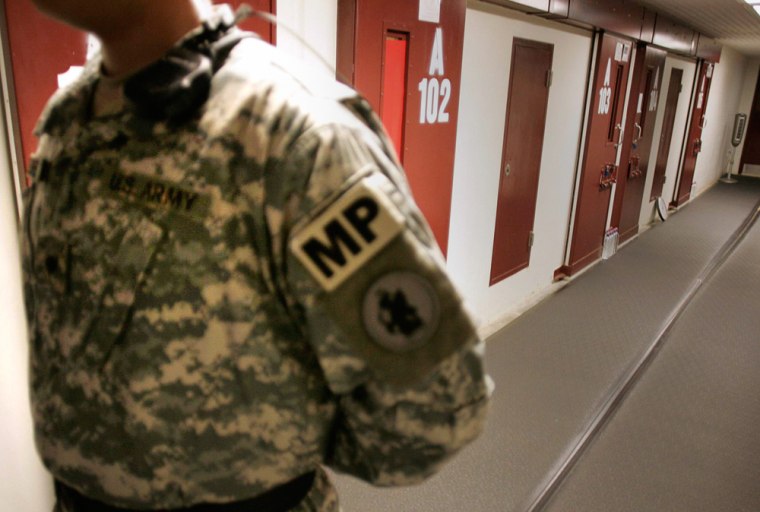Attorneys for at least 40 Guantanamo Bay prisoners have been barred from visiting or writing their clients because of a judge’s order dismissing legal challenges to the men’s confinement, the U.S. Department of Justice said Friday.
A Justice Department lawyer informed the attorneys of the new restrictions in an e-mail that cited Thursday’s dismissal of their cases by District Court Judge Ricardo Urbina in Washington.
“In light of this development, counsel access (both legal mail and in-person visits) is no longer permitted,” Justice Department lawyer Andrew I. Warden said in the e-mail.
Urbina’s ruling, which covered 16 legal petitions filed on behalf of 40-60 detainees, invalidated an order that establishes rules for contact with detainees, Warden said.
Challenges pending
Challenges are still pending for dozens of other detainees with the Supreme Court set to consider whether Congress had the right to strip the prisoners of the right to contest their confinement with petitions of habeas corpus.
The Justice Department letter outlined a series of legal steps that would be required before the attorneys could resume contact with the detainees.
But attorney Wells Dixon said he would most likely not be able to complete those measures in time for a scheduled visit with a Libyan client in October.
That visit is crucial, Dixon said, because he is in the midst of trying to prevent the government from transferring the client back to Libya, where his lawyers fear he will be tortured.
“This is just the latest example of the government’s efforts to frustrate counsel access to detainees,” he said.
A Pentagon spokesman, Navy Cmdr. Jeffrey Gordon, said the U.S. was following the laws that govern the legal rights of Guantanamo detainees and officials were pleased with Urbina’s ruling.
“We have afforded detainees at Guantanamo with greater access to attorneys than any other combatants in the history of warfare,” Gordon said.
The U.S. holds about 340 men at the detention center in Cuba on suspicion of terrorism or links to al-Qaida or the Taliban. Most of the prisoners have filed petitions of habeas corpus, a legal challenge to their confinement.
Last year, the U.S. Congress passed the Military Commissions Act, which stripped all detainees of the right to file habeas petitions — a fundamental legal right under the U.S. Constitution. The Supreme Court has said it will consider the law in its next term.
